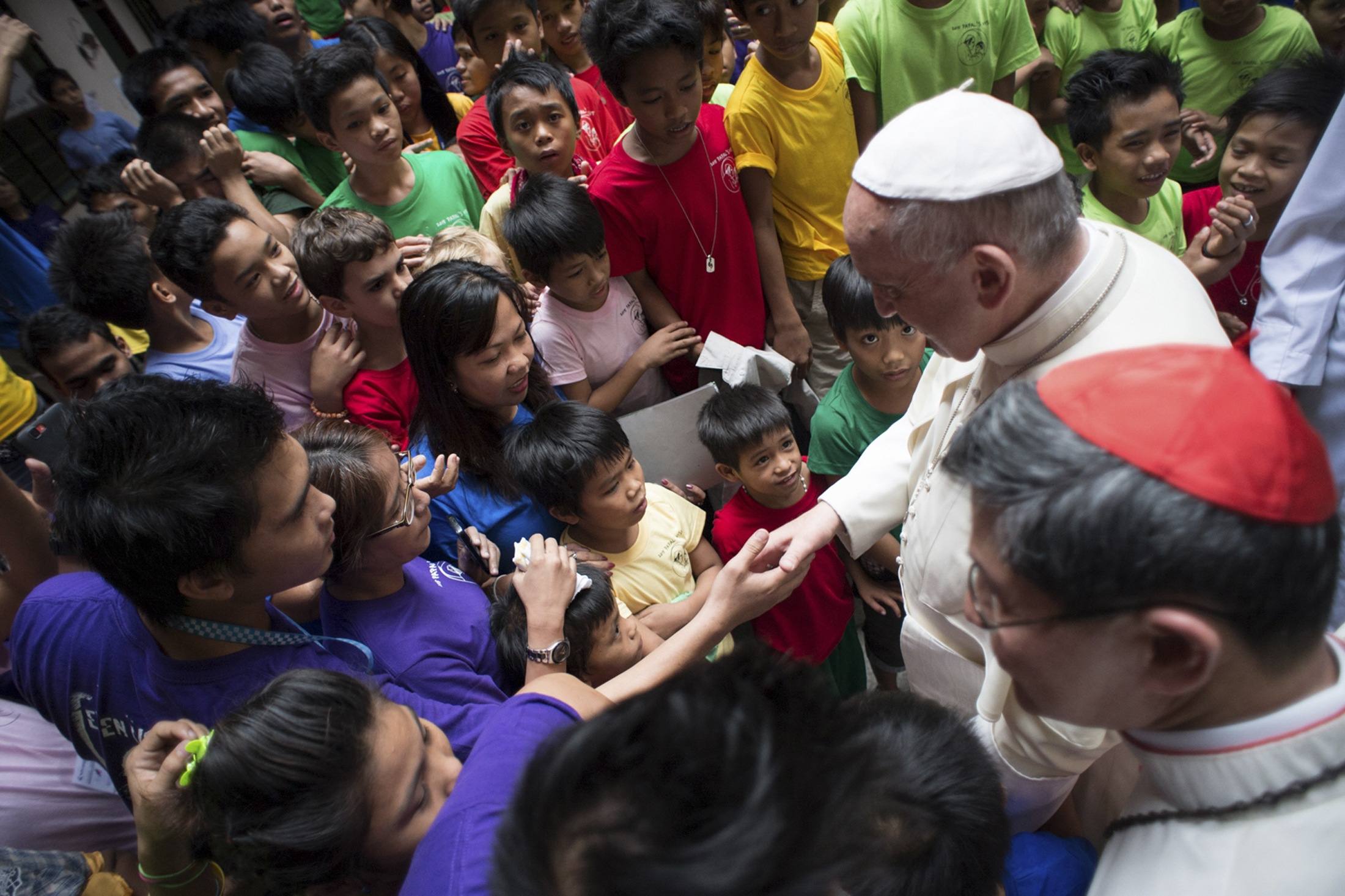
Pope Francis has this week spoken about families, contraception and ideological colonisations that threaten the family – in the process gaining world-wide media attention and sparking questions from Catholics and non-Catholics alike.
The Archdiocese of Perth Communications and Media Office this week took a closer look at what the Pontiff really said and spoke with Attadale parish priest and lecturer in theology at the University of Notre Dame Fremantle, Fr Sean Fernandez, asking him to provide Perth Catholics with an insight into how this applies to us today.
The Pope’s remarks come in the wake of a number of comments he made about birth control during an impromptu press conference on the papal plane.
In answer to questions on the Church’s stance on contraception, the Holy Father noted that responsible parenthood doesn’t mean that “a Christian must have children serially”.
“Some think that – excuse the language – that in order to be good Catholics, we have to be like rabbits. No. Responsible parenthood. This is clear and that is why in the Church there are marriage groups, there are experts in this matter, there are pastors, one can search; and I know so many ways that are licit and that have helped this,” the Pope said.
Attadale parish priest and lecturer in theology at the University of Notre Dame Fremantle, Fr Sean Fernandez commented on the Pope’s remarks, emphasising that the Pope was reiterating Blessed Paul VI’s 1968 Encyclical Letter Humanae Vitae which states that, for “well-grounded reasons” such as physical or psychological conditions of the husband or wife, couples can “take advantage of the natural cycles immanent in the reproductive system during those times that are infertile”.
“In doing this,” the encyclical states, “they certainly give proof of a true and authentic love” (HM, 16).
“The Holy Father has a very pastoral, down to earth way of expressing what is traditional Church teaching: he wasn’t disparaging large families,” Fr Fernandez said.
“Only a few weeks ago there was a gathering of families and he stated that, in a world often marked by selfishness, the big family is a school of solidarity and sharing, and these attitudes benefit the whole of society,” he added.
Fr Fernandez believes this “down to earth approach” was also visible in the comments he made following the Charlie Hebdo terrorist attacks, which some took as a justification of violence.
“After his comment on the punch, he said that nothing justifies violence, but we have to be prudent because if you act in a certain way, it creates a response. And we have seen that with the latest cartoons in Charlie Hebdo. People have died, there have been riots. So there are consequences for what we say and do,” Fr Fernandez said.
In his weekly General Audience in the Vatican’s Paul VI Hall yesterday, Pope Francis looked back on his recent travels to Sri Lanka and the Philippines and referred to his trip as a “joyous meeting with the ecclesial communities that give witness to Christ”.
Catholic Services have this week reported that one of the main events to his visit was the meeting with 1,000 families in Manila on 16 January.
The Pope recalled the meeting at the audience, calling it a “salient” moment and stating that “it gives consolation and hope to see many large families who welcome children as a true gift of God”.
“I have heard it said that families with many children and the birth of many children are among the causes of poverty. It seems to me a simplistic opinion,” he continued, and emphasised that economic systems which create a culture of waste are to blame.
“I can say, we can all say, that the main cause of poverty is an economic system which has taken away the individual from the centre and has placed there the god of money, an economic system that always excludes children, the elderly, the youth, the unemployed, and creates the culture of waste in which we live,” the Pope said.